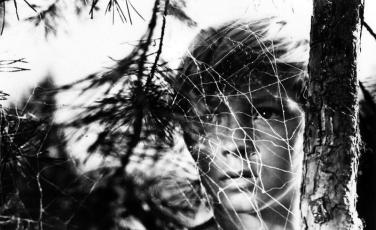
Ivanovo detstvo (La infancia de Iván), Andréi Tarkovski, Soviet Union, 1962, 95'
The first feature length film by a young Andréi Tarkovski, who had graduated from film school with a short film for his thesis, Katok i skripka (The Steamroller and the Violin, 1960), and who was called by the Mosfilm Studios to continue a film whose director had been fired. A commissioned job, therefore, but which the young director managed to make his own, and where he already imprinted his particular talent, style and cinematographic power.
Based on a short novel by Vladimir Bogomolov, the film describes the life of an orphaned boy, young Ivan, at the time of World War II. But this is one of those war films where military combat and manoeuvres are off-camera; and in which what matters is what happens within the characters. You recall that distance in other films such as The Thin Red Line (Terrence Malick, 1998), don’t you? Well it's the same thing, but 40 years earlier.
Tarkovski portrays a duality between the child-adult fully integrated in the war and the world of his dreams, specifically four, where he will unleash the full poetic potential of this sad story.
The film was a milestone at the time and was praised by other directors and by critics: its careful photography, the soundtrack, the lyricism of its images… A unique director was born and the world's screens prepared for this arrival.
The film received the Golden Lion at the Venice Film Festival in 1962.
The first feature length film by a young Andréi Tarkovski, who was called by the Mosfilm Studios to continue a film whose director had been fired. A commissioned job, therefore, but which the young director managed to make his own, and where he already imprinted his particular talent, style and cinematographic power.
